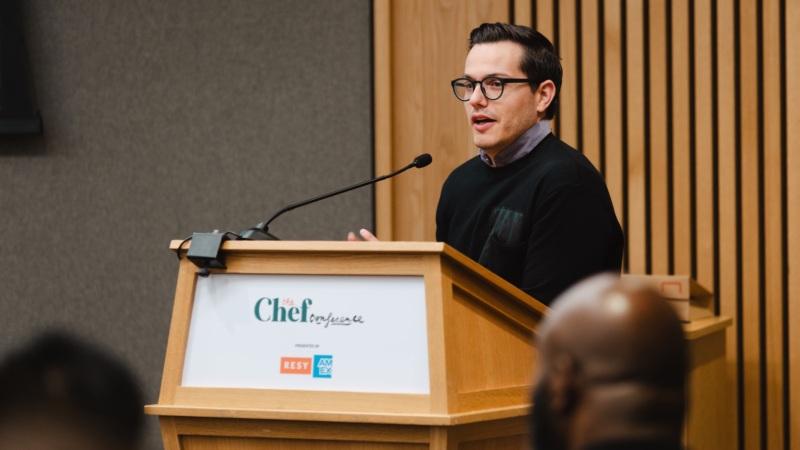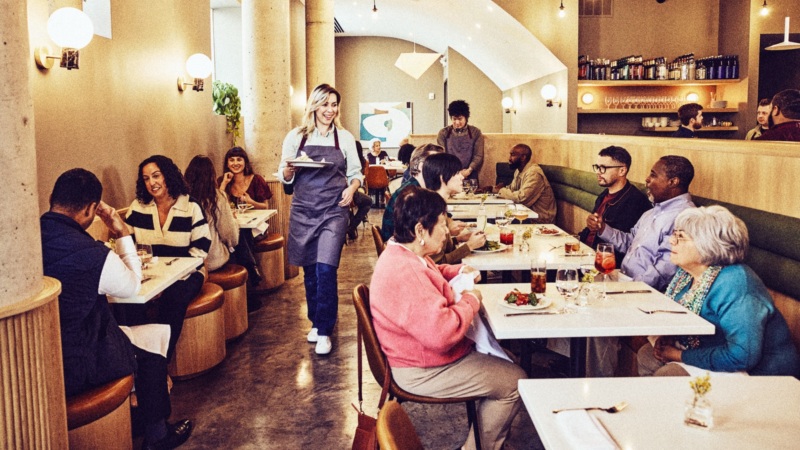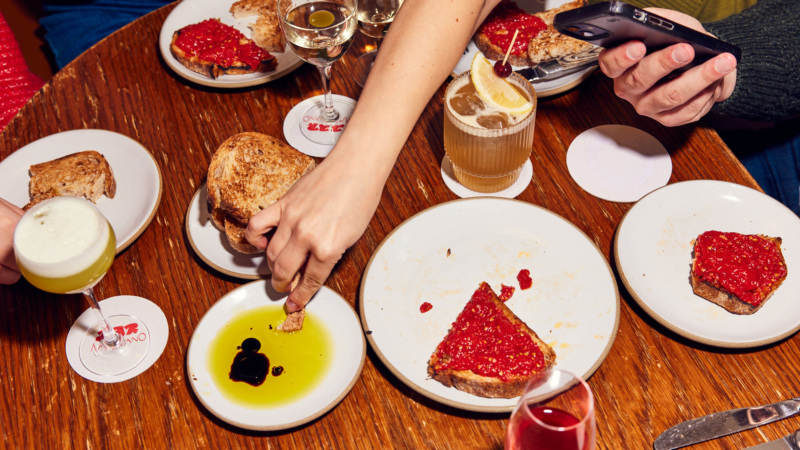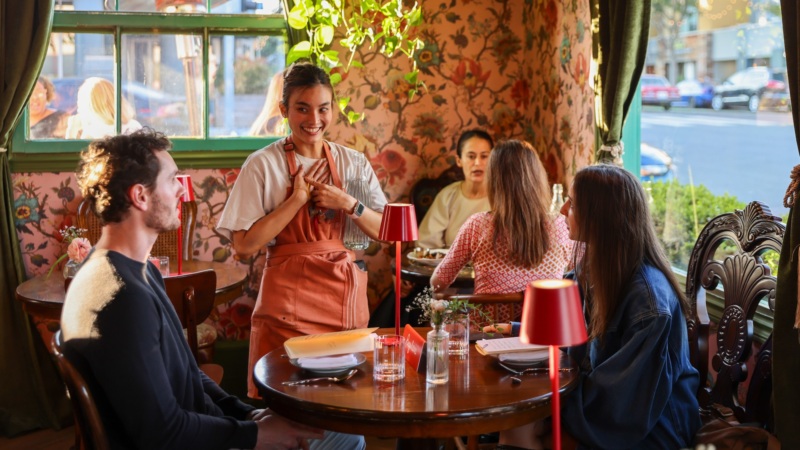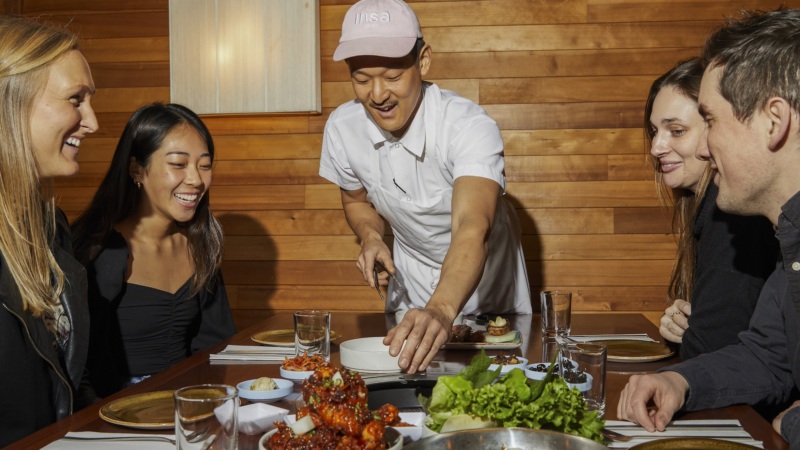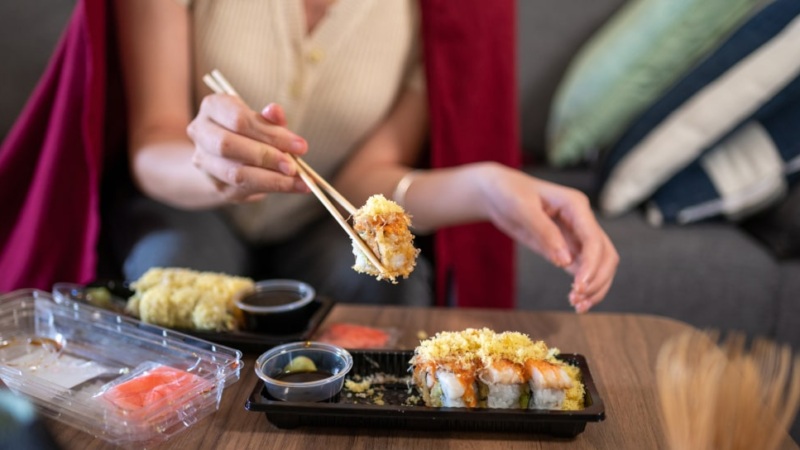

A Love Letter to Waiting Tables
Published:
“When I grow up, I would like to be a waitress.” That’s what is written in my 9-year-old scrawl on a bit of school artwork entitled “A Reflection of Me,” an ersatz mirror made out of tin foil.
There were only so many professions that I was even aware of at that age, but turns out there was some serious self-awareness at work. I liked to eat, and I especially liked to eat at sit-down restaurants, a rare treat at the time. But obviously something deeper appealed to me about the act of serving. It would be a long and circuitous route before I actually tied on an apron — I waited my first table at age 35, and it was a love story from the start.
Most people don’t end up following their 9-year-old dreams, and I was no exception. Working in a restaurant wasn’t generally encouraged for smart, ambitious young people, so I spent my young adulthood chasing other interests. In my mid-30s, however, following 12 years of administrative work, I was restless, miserable, and frequently fantasizing about quitting my job to be a server. I read every server memoir that was available — even “Waiter Rant” — and still came away with the same gut feeling: yes, this is for me. The problem was that I had no experience, no knowledge of front of house structure, and lacked the moxie to apply for a restaurant position. Instead, I did what any master’s-degree-holding adult fantasizing about working in restaurants would do: I went to culinary school.
I finally got the courage to apply for and was offered my first restaurant job as a server assistant. Assuming that I was heading for a future in the kitchen from my in-progress culinary degree, I took the server role just to keep myself afloat financially. After my first few training shifts in the front of house, I felt the unmistakable glow of self-satisfaction; I had been right all along, even since childhood. Working in restaurant service was fun, really fun. I liked the energy and motion of it, the camaraderie among the staff, the interaction with guests, and all the little ways in which we could enhance the dining experience. Serving is incessantly portrayed as a job, and a fall-back one at that, rather than a career. But for me — and many other service professionals I would encounter in my restaurant tenure — it was nothing short of a calling, and the time I spent in restaurant service came with a wealth of personal and professional growth.
Serving is Brain Work
Serving for me was indeed fun, but it was also much more than that. I found that waiting tables at any level required more and a better use of my brain than any of the “professional” jobs I had previously done. The constant prioritizing and re-prioritizing of tasks, recollection of information, and communication, coupled with the motion and choreography that serving entails made for a much more satisfying work day than anything I had previously experienced. Despite feeling physically tired after a shift, I still felt energized — even after especially punishing shifts — much more so than I had ever known slogging it out in front of a computer for 8 hours. Following culinary school, I made the decision to continue in the front of house, where I made my way up through being a server and bartender, eventually transferring from an upscale casual restaurant to a fine dining one, where I became a captain.
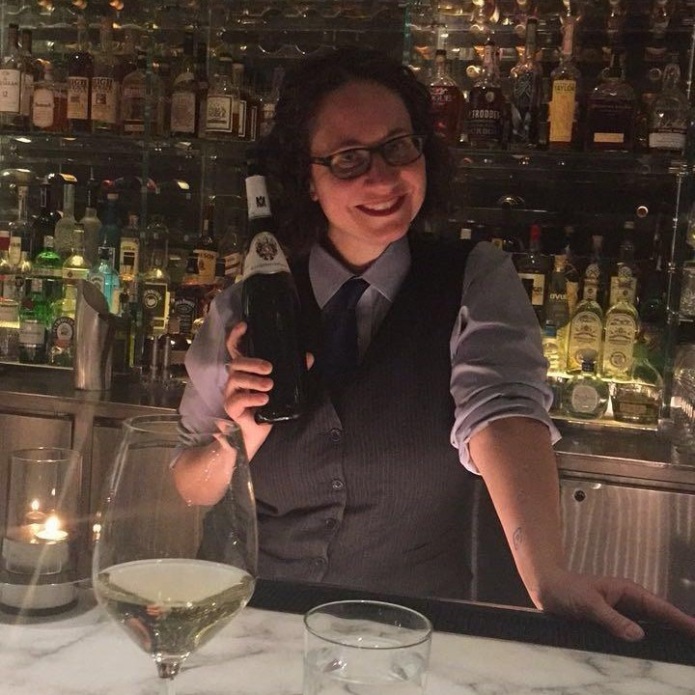
For anyone who needs to hear it: Serving can be an edifying, stimulating, often financially lucrative career.— Pamela Vachon
Serving is Learning
My time spent as a server was arguably the most educational period of my life. Even having attended culinary school, it was from my angle as a server that I put to use the knowledge of ingredients, flavors, and techniques, and was introduced to many more. I took every opportunity that was afforded to me for excursions or tastings. On my way to the interview at The Modern, I was googling, “What is Burgundy?” Eighteen months later I was a certified sommelier. When the restaurant rolled out — literally — a tableside cheese trolley, I stepped up to learn as much as I could so I could confidently drive it. Now I write about cheese and teach classes on the topic. Some of that was self-directed study by a lifelong nerd, yes, but a lot of that was just showing up to work every day like it mattered to me, which it did.
Serving Can Be A Career
Justifying being a restaurant server, especially after a master’s degree and culinary school education, is something I was still sometimes asked to do. One of my previous employers actually called me to offer my job back early in my tenure, after hearing that I was “only” waiting tables. I politely explained how they could no longer afford me, financially or emotionally. For anyone who needs to hear it: Serving can be an edifying, stimulating, often financially lucrative career. Yes — career. Anyone who feels, as I did, that restaurant service is a path worth taking, especially at an earlier age, should count themselves lucky. If I had to do it over again, I’d happily do it over again, only sooner.
Pamela Vachon is a freelance writer whose work has appeared in Bon Appetit, Wine Enthusiast, and VinePair, among others. She previously worked for 10 years as a server, bartender, and captain, between Union Square Hospitality Group’s Blue Smoke and The Modern.
*Opinions and views in articles shared on Resy OS are presented for the purpose of discussion and commentary on topics of interest in the restaurant industry; they should not be viewed as substitutes for advice given by professionally engaged business consultants and advisors.

